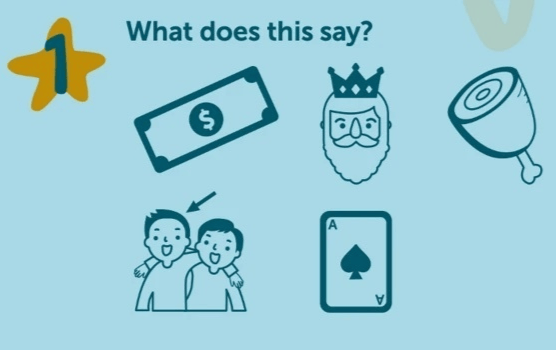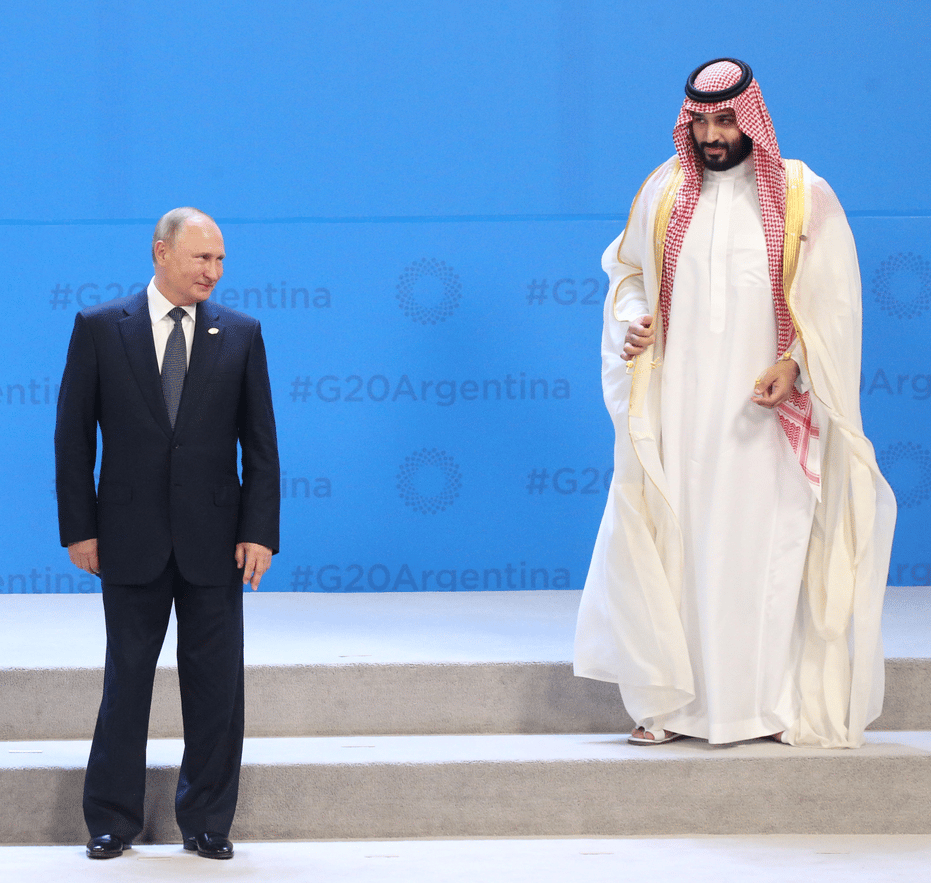In the headlines
The justice secretary, Shabana Mahmood, has warned that prisons could still run out of space in the next few years despite new government proposals to create 14,000 more places. The £10bn commitment to increasing capacity includes building four new super-prisons, which will potentially be fast-tracked through the planning process in 16 weeks. Iran’s supreme leader has blamed the US and Israel for the toppling of Syria’s Bashar al-Assad, improbably claiming there was “no doubt” they were behind it. The Syrian Islamist group Hayat Tahir al-Sham (HTS) and its allies have appointed Mohammed al-Bashir, the former head of the rebel administration in the north-west, as interim prime minister. GCHQ has released its annual Christmas brainteaser. The intelligence agency’s puzzle, which this year involves decoding the names of UK landmarks, consists of seven challenges, the first of which is pictured below. Give the whole thing a go here.

Comment

Suspected killer Luigi Mangione. X/@Pepmangione
Why are keyboard warriors idolising a murderer?
According to the modern left, says Brendan O’Neill in The Spectator, killing the fascists of Hamas is “genocide” but murdering a CEO and father of two is “justice”. How else to make sense of the “creepy idolisation” of Luigi Mangione, suspected of shooting dead Brian Thompson, chief executive of the US insurance firm UnitedHealthcare? On certain corners of the web, leftists are not only making excuses for this “barbaric attack on an innocent, unarmed man”, but celebrating it. “He had it coming,” cried thousands of “sunlight-starved online radicals” – it was “just deserts” for America’s unfair insurance system. When the firm posted a tribute to their murdered CEO on Facebook, 70,000 people replied with the cry-laughing emoji (🤣) in mockery of the dead dad.
It should go without saying that “killing people is not a reasonable response to social problems”. Yet it isn’t just the “privileged toytown revolutionaries of TikTok” who saw the killer as some kind of 21st-century Robin Hood. Even some mainstream commentators have been out there wondering out loud if the “gleeful reaction” might have something to it. Former Washington Post columnist Taylor Lorenz posted a celebratory image that read “CEO DOWN” and told Piers Morgan (before backtracking) that she felt “joy” at Thompson’s death. Over at The Guardian, Arwa Mahdawi told anyone “shocked by the satisfaction Thompson’s murder has inspired” to “spare me the pearl clutching”. Well, if it’s pearl clutching to be concerned that we live in an era of such “casual cruelty and digital spite” that tens of thousands of people will happily “taunt the colleagues of a murdered man with a cackling emoji”, I guess I’m a pearl clutcher.
😇😈 What’s striking is how “intensely conservative this all is”, says Jeremiah Johnson on Substack. This crowd is “cheering vigilante justice”, evidently believing the world is separated between “the Righteous and the Wicked”, and that those wicked people are not worthy of legal protections so they get what’s coming to them. “These are conservative ideals with leftist wrapping paper.” These people do not oppose violence, “they just want to be the ones doing it”.
Advertisement
Love to read? Then you’ll love Readly. Discover a world of stories, insights, and inspiration with Readly – your all-in-one app for reading, with access to over 7,500 magazines and newspapers
Stay informed with The Guardian or your local paper, flick through New Scientist, get inspired with Wanderlust and Good Food, or relax with Viz and Autocar. No matter your interests, Readly delivers endless reading, anytime, anywhere – even offline.
Join the hundreds of Knowledge readers already enjoying Readly and see why they’re hooked! Click here to get your exclusive offer with 40% off your first six months today. Cancel anytime.
Tomorrow’s world

OpenAI has released its AI-generated video tool, Sora, to paying customers, says Ars Technica. The model, which isn’t yet available in Europe, takes users’ verbal prompts and turns them into short videos – just as the company’s ChatGPT bot does with text. The video above, for example, was generated with the prompt: “In a pastel bathroom with a rubber ducky, an adorable dragon made entirely of shampoo bubbles. The dragon breathes bubbles.” The company acknowledges that Sora isn’t perfect – it apparently “struggles with physics simulations and complex actions over extended durations” – but this is still a “major milestone”.
Inside politics
There’s a simple trick world leaders can use when they’re being bullied by Donald Trump, says The Economist: distract him. During an Oval Office meeting with Panama’s then president, Juan Carlos Varela, in 2017, Trump told him it had been a mistake for the US to cede control of the Panama Canal in 1999, and that “we should take that thing back”. Varela, who had been “assiduously prepped” to avoid confrontation, quickly changed the subject, asking his host: “Mr President, can I ask you a question? How are you doing in Syria?” Trump took the bait and moved on, telling him “America is winning”.
Quirk of history

Michelangelo’s David: “small and taut”. Getty
There’s a reason why the men in classical statues generally aren’t very well endowed, says Mental Floss: in Ancient Greece, small penises were considered better than big ones. Photographer Ingrid Berthon-Moine, who snapped close-ups of the antique todgers for a 2013 series, says “small and taut” genitals were favoured to “show male self-control”. In The Clouds by Aristophanes, one character describes the ideal male form as having a “good chest, a clear complexion, broad shoulders, a moderate tongue, sturdy buttocks, and a small genteel penis”.
Win a £100 John Lewis voucher
We’re giving away three £100 vouchers to readers who share The Knowledge with their family and friends. All you have to do is get one person to sign up to The Knowledge before Friday – and the more referrals you make, the better your chances of winning.
Comment

Vladimir Putin with Saudi leader Mohammed bin Salman in 2018. Mikhail Svetlov/Getty
Russia is running out of money
Ukraine is slowly losing its conflict with Russia on the battlefield, says Ambrose Evans-Pritchard in The Daily Telegraph, but Moscow is losing the economic conflict “at a roughly equal pace”. The Russian central bank has raised interest rates to 21% in a bid to “choke off an inflation spiral”. Export earnings from fossil fuels have roughly halved since mid-2022, to $600m a day, and the war machine is “gobbling up a tenth of GDP”. Then there’s the shortfall in manpower. Some 800,000 of the young and best-educated have fled Russia, and almost half a million have been “slaughtered or maimed in the meat grinder”. The IT sector has a shortfall of around 600,000 workers; the defence industry has 400,000 unfilled positions.
Even the Russians acknowledge that things are bad. Sergei Chemezov, head of defence giant Rostec, says “most companies will essentially go bankrupt” if interest rates stay above 20%. Anatoly Kovalev, head of Zelenograd Nanotechnology Centre, says his industry has a drastic shortage of qualified specialists, including engineers, technologists, developers and designers. Crucially, Western sanctions mean the Russians are having to buy many of their semiconductors “at a stiff premium” on the black market, and these chips are shonky as hell: Ukrainian troops report that Russian Geran-2 drones “keep spinning out of control”. Vladimir Putin’s regime isn’t yet at the point of economic collapse. But if, as many predict, the Saudis flood the world with cheap oil to regain market share, then the price of crude will plummet and Moscow really will be in trouble. “The Ukraine war may end in Riyadh.”
Quirk of language

Getty
There are few phrases that irk me more than “pigs in blankets”, says Michael Simmons in The Spectator. The correct name for the Christmas delicacy is, of course, “kilted sausages”. In fact, the bacon-wrapped banger has all manner of incorrect monikers. The Irish call them “kilted soldiers” while the Germans go with “Bernese sausages” (Berner Würstel). The Americans wrap a hotdog in croissant pastry and call it saucisson en croûte – as if it’s “some kind of European delicacy”.
On the way back
Cash is making a comeback in the UK, says BBC News. A fifth of purchases were made using coins and notes in 2023, up for the second year running after a decade of decline. The British Retail Consortium says the shift is probably because shoppers find that cash helps them budget better.
Snapshot

Snapshot answer
They’re Dorothy’s ruby slippers from The Wizard of Oz, which have become the most valuable items of movie memorabilia ever sold at auction. The fancy footwear – one of four surviving pairs worn by Judy Garland in the 1939 classic – went for $32.5m. The high price probably reflects the shiny shoes’ bizarre backstory, says NBC News: they were stolen from the Judy Garland Museum in Minnesota in 2005 by 77-year-old ex-mobster Terry Jon Martin, who said he wanted to pull off “one last score”, and then recovered in 2018 in an FBI sting operation.
Quoted
“You can pick out actors by the glazed look that comes into their eyes when the conversation wanders away from themselves.”
English actor Michael Wilding
To order The Knowledge Book of Insults in time for Christmas, click here
That’s it. You’re done.
Let us know what you thought of today’s issue by replying to this email
To find out about advertising and partnerships, click here
Been forwarded this newsletter? Sign up for free
Enjoying The Knowledge? Click to share


